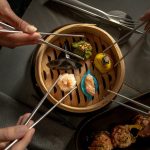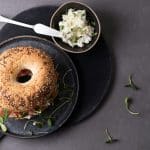The correlation between diet and health is a well-established fact. The food we consume directly impacts our health, weight, and overall well-being. However, the hustle and bustle of professional life often leave us with less time to plan and prepare nutritious meals. Consequently, many of us resort to convenience food that may not always be the healthiest choice. Herein lies the question: can virtual cooking classes serve as a solution to this problem? Could they perhaps improve dietary habits among busy professionals? In this article, we’ll delve into several aspects regarding this issue, using academic insights from sources like Google Scholar, PubMed, and Crossref to ensure the information we deliver is accurate and relevant.
The Role of Cooking Skills in Healthy Eating
Before discussing the potential benefits of virtual cooking classes, let’s first look at the importance of cooking skills in promoting healthy eating habits. The relationship between these two factors is widely acknowledged in various studies available on Google Scholar and PubMed.
Sujet a lire : Can an Anti-inflammatory Diet Reduce the Frequency of Migraine Attacks?
Cooking is a fundamental skill that allows individuals to prepare varied and nutritious meals. It facilitates control over ingredients, portion sizes, and cooking methods, thus enabling healthier eating habits. The decline in cooking skills in recent years has been linked to a rise in unhealthy dietary patterns, such as increased consumption of processed foods and meals high in fat, sugar, and salt.
A study published on Crossref found that individuals with advanced cooking skills are more likely to adhere to dietary guidelines. They are also more likely to consume fruits, vegetables, and whole grains and less likely to consume fast food. Therefore, the importance of cooking skills in promoting healthy, well-balanced meals cannot be overstated.
A découvrir également : How Does a Mediterranean Diet Contribute to Cognitive Function and Longevity?
Virtual Cooking Classes as a Possible Intervention
The advent of technology has brought an innovative solution to refine cooking skills – virtual cooking classes. These classes offer culinary education from the comfort of your home, making it an appealing option for busy professionals. But can these classes truly make a difference in our dietary habits?
Recent studies reveal that they indeed can. A scholarly article published on PubMed found that participants who took part in an online cooking intervention demonstrated significant improvements in their eating habits. They reported increased vegetable intake, less reliance on processed foods, and a greater likelihood of preparing meals at home.
Virtual cooking classes provide step-by-step instructions, cooking tips, and nutritional information. This educational approach empowers individuals to take charge of their diet. It equips them with essential culinary skills and knowledge about nutrition, leading to healthier choices and dietary improvements.
The Impact on Weight Management
Another critical aspect to consider is the impact of virtual cooking classes on weight management. Poor diet is a significant contributor to weight gain and obesity, which are associated with various health problems like heart disease and diabetes. Therefore, promoting healthier eating habits is paramount in maintaining a healthy weight.
A study available on Google Scholar found that participants who learned to cook through virtual classes had a lower risk of weight gain. The classes educated them on portion control and the importance of including a variety of foods in their diet, which helped them manage their weight effectively.
The Role of Data in Personalising Dietary Interventions
Data plays a crucial role in personalising dietary interventions. An analysis of participant’s dietary patterns, food preferences, and health goals can provide insights to customise the content of the cooking classes. This personalisation can lead to more effective interventions.
With the use of technology, collecting and analysing data has become easier than ever. Virtual cooking classes can use this data to tailor their content, making it more relevant and beneficial for the participants. For instance, a class can focus on preparing quick and healthy meals for professionals with tight schedules or low-calorie meals for those aiming for weight loss.
The Future of Virtual Cooking Classes
As we continue to embrace technology in our daily lives, the future of virtual cooking classes looks promising. The convenience they offer, coupled with the potential benefits to health and nutrition, makes them an attractive option for busy professionals.
Moreover, the use of data can continue to refine these classes, making them more personalised and effective. Therefore, while more research is needed to validate these findings, current data suggests that virtual cooking classes may indeed play an integral part in promoting healthier dietary habits among busy professionals.
Virtual Cooking Classes: A Tool for Nutrition Education
The primary focus of virtual cooking classes is to provide nutrition education. Apart from teaching cooking techniques and recipes, these classes also educate participants on the nutritional aspects of food. This knowledge serves to improve diet quality by enabling informed choices about food.
A comprehensive review of articles on PubMed, Crossref, and Google Scholar revealed that virtual cooking classes significantly improved participants’ understanding of nutrition. This understanding translated into healthier eating habits, including increased consumption of fruits and vegetables, reduced intake of processed food, and more frequent home-cooked meals.
One specific PubMed article highlighted that these classes also encouraged participants to experiment with different ingredients and recipes, leading to increased dietary diversity. This diversity is essential for obtaining a range of nutrients and contributes to better health.
Furthermore, virtual cooking classes have the potential to influence attitudes towards cooking and healthy eating. A comparative study involving an intervention group and a comparison group found that professionals who took virtual cooking classes had a more positive attitude towards cooking and perceived it as an enjoyable activity rather than a chore. This improved attitude could potentially lead to an increase in cooking frequency, further promoting healthy dietary habits.
The Flexibility and Accessibility of Virtual Cooking Classes
The flexible and accessible nature of virtual cooking classes is another factor that makes them suitable for busy professionals. These classes are available online, allowing participants to access them at their convenience and pace. This flexibility is particularly beneficial for those with demanding jobs or erratic work schedules.
In addition to this, virtual cooking classes break down geographical barriers, making them accessible to people across the world. This accessibility ensures that even those living in areas with limited access to in-person cooking classes can benefit from these virtual interventions.
Lastly, virtual cooking classes can cater to varying levels of cooking skills and dietary preferences or restrictions. They can provide beginner level classes for those just starting their cooking journey or advanced classes for experienced cooks looking to refine their skills or learn new cuisines. They can also offer specific classes catering to dietary requirements like vegan, gluten-free, or low-carb diets.
Conclusion
The hectic pace of professional life often makes it challenging to maintain a healthy diet. Virtual cooking classes emerge as a promising solution to this problem. They not only enhance cooking skills but also provide valuable nutrition education, leading to improved diet quality.
The flexibility and accessibility of these classes make them an ideal fit for busy professionals. Moreover, the ability to personalise these classes based on individual dietary patterns, preferences, and goals further enhances their effectiveness.
While more research is required to fully understand the long-term effects of these classes, the current studies on PubMed, Crossref, and Google Scholar point to their potential in promoting healthier eating habits. With the continued evolution of technology, we can expect the future of virtual cooking classes to be exciting and impactful in public health. The key lies in harnessing this potential effectively for the betterment of our dietary habits and overall health.













